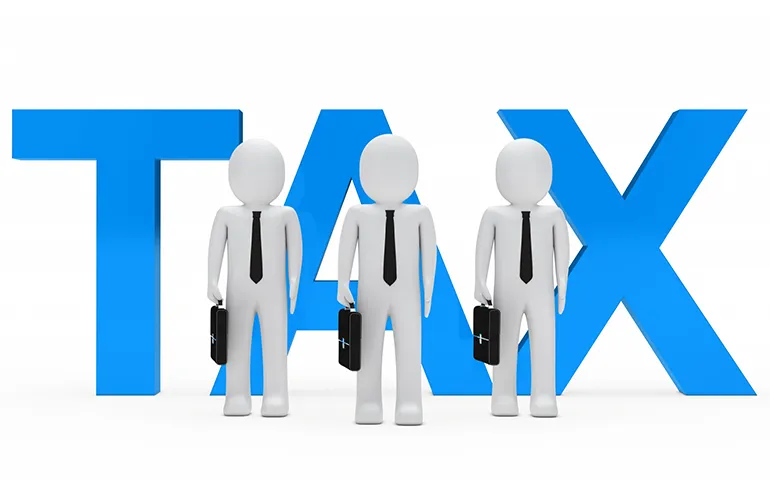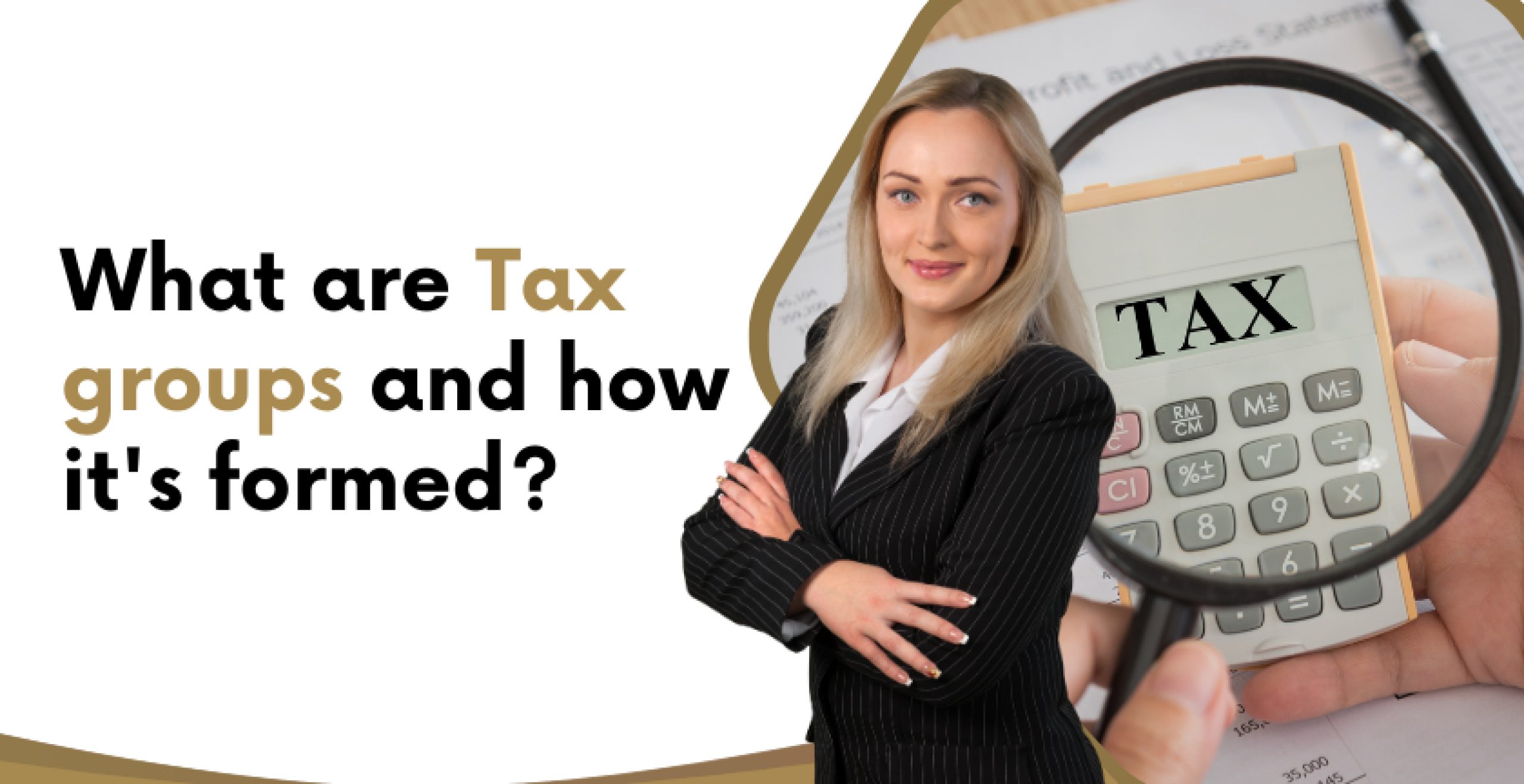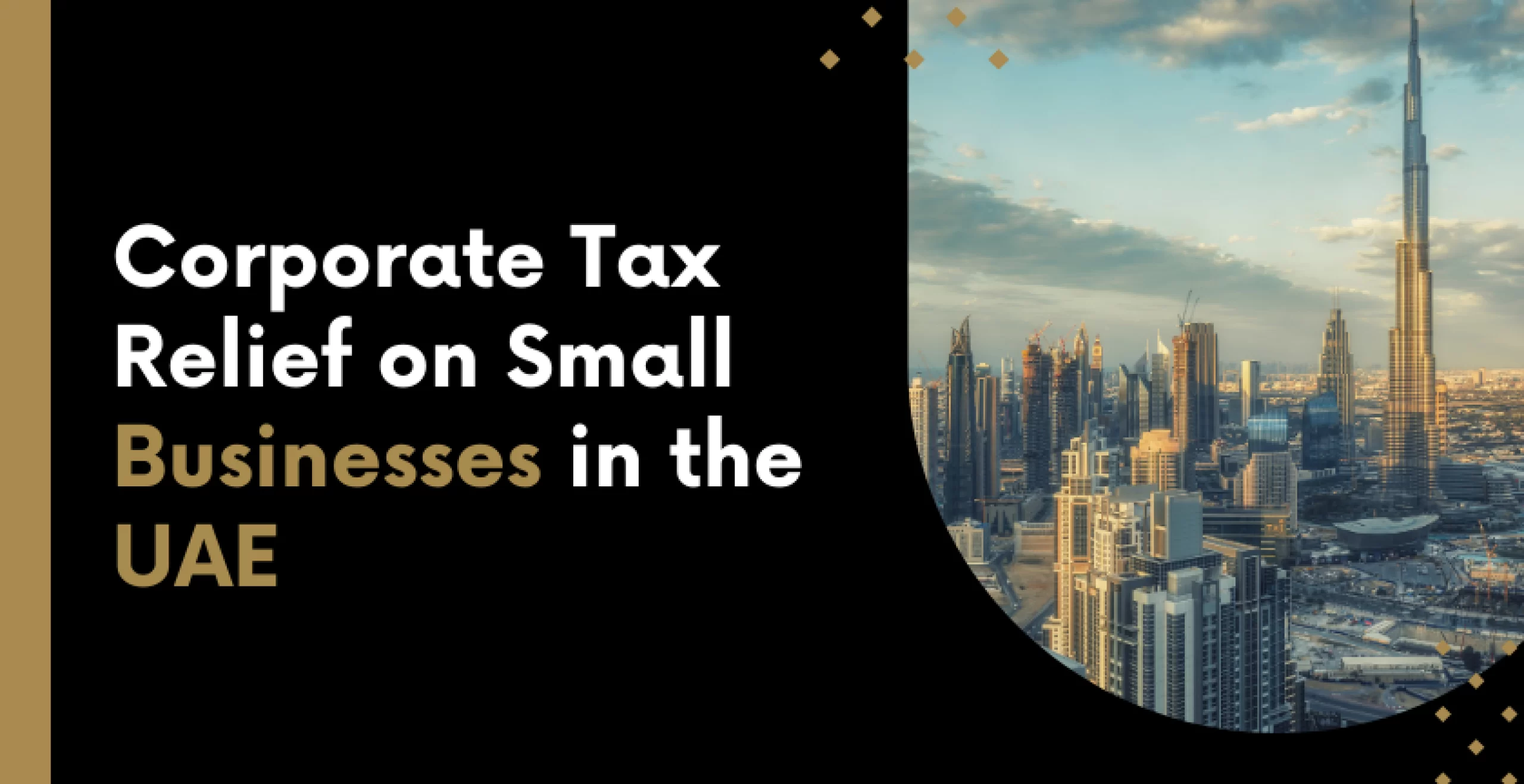Taxes in Dubai are taking on a new look, and it’s an important subject that affects everyone. Dubai, a city renowned for innovation and economic prosperity, is revamping its tax system.
The government collects taxes, which are a special kind of money, from people and businesses to fund essential services like schools, hospitals, and infrastructure. Dubai is rethinking how it collects and manages these funds.
Dubai’s forward-thinking approach to taxation reflects its commitment to adapting to the evolving global economic landscape. As we move this financial transformation, to uncover how Dubai continues to shine as a inspiration of opportunity and innovation in the heart of the Middle East.
Types of Tax in Dubai
Following are the few main types of taxes in Dubai:
VAT (Value Added Tax)
Value Added Tax (VAT) is a crucial component of Dubai’s taxation system and the broader tax framework of the United Arab Emirates (UAE).
To convert the sentence into active voice while maintaining the same length and meaning:
On January 1, 2018, the government introduced VAT, a consumption tax applied to the value added at each stage of production or distribution of goods and services.
The standard VAT rate in Dubai and the UAE is 5%, making it one of the lowest rates globally. VAT revenues play a significant role in supporting the UAE’s public services, infrastructure development, and diversification of the economy.
VAT applies to a wide range of goods and services, including but not limited to consumer goods, electronics, clothing, entertainment, hospitality, and professional services. However, certain essential items like basic food items, healthcare services, and education may be exempt or subject to a reduced rate.
If their annual taxable supplies and imports exceed a specific threshold, businesses in Dubai must register for VAT.They must also maintain detailed records of their financial transactions and regularly report their VAT liabilities to the UAE tax authorities.
VAT compliance is a critical aspect of doing business in Dubai, and companies often seek the assistance of tax professionals to navigate the complexities of VAT regulations, ensuring accurate reporting and adherence to tax obligations. Furthermore, Proper VAT management is not only essential for legal compliance but also for maintaining a healthy financial ecosystem in this bustling economic hub.
Corporate Income Tax
- No Corporate Income Tax applies to taxable income up to AED 375,000.
- For taxable income exceeding AED 375,000, a Corporate Income Tax rate of 9% is applicable.
- Large companies meeting specific criteria linked to Pillar Two of the OECD Base Erosion & Profit-Sharing Project, such as global revenues surpassing 750 million or AED 315 billion, will be subject to a distinct tax rate.
This transformative fiscal landscape reflects the UAE’s commitment to a progressive tax regime, ensuring economic sustainability and aligning with international tax standards.
Personal Income Tax

Authorities have often referred to Personal Income Tax, also known as individual income tax, as a direct tax that they impose on an individual’s earnings or income. In Dubai, as part of the United Arab Emirates (UAE), there is generally no personal income tax levied on residents, making it an attractive destination for expatriates and skilled professionals.
The absence of personal income tax means that individuals can retain their entire income without any deductions for taxation purposes. This tax-free income policy has been a significant driver in attracting a diverse and skilled expatriate workforce to Dubai and the UAE, contributing to the region’s economic growth and development.
However, it’s essential to note that while personal income tax is not applied at the federal level, there may be certain exceptions and fees at the emirate or local level, such as municipal fees or social security contributions. In many other countries, these fees are typically low than income taxes.
Dubai’s tax-friendly environment, combined with its world-class infrastructure, business opportunities, and high quality of life, has made it a preferred destination for individuals seeking career advancement and financial growth.
The absence of personal income tax is a significant incentive that underscores Dubai’s commitment to attracting and retaining global talent. While promoting economic prosperity and diversification.
Custom Tax
Customs Duties, often simply referred to as customs or import duties, are charges imposed by a government on the importation of goods from other countries. These duties are a form of indirect tax and are typically collected at the point of entry, such as a seaport or airport, when goods are imported into a country. Dubai, as a major international trade and logistics hub, also applies customs duties, although its rates are generally considered relatively low compared to many other countries.
The purpose of customs duties is multifaceted. They act as a source of government revenue, aid in protecting domestic industries by increasing the cost of imported goods, and serve as a tool for trade policy and regulation. Dubai’s strategic location as a trade and business center means that customs duties play a crucial role in regulating the flow of goods into and out of the emirate.
The specific rates and regulations governing customs duties in Dubai varies depending on the type of imported goods imported, their value, and their country of origin. However, in many cases, countries and regions enter into trade agreements that may reduce or eliminate customs duties on certain goods, promoting international trade.
Dubai’s relatively low customs duties, combined with its efficient logistics and transport infrastructure, have contributed to its status as a global trade and business hub. Companies operating in Dubai benefit from favorable customs policies that facilitate the movement of goods and support the growth of international trade.
Excise Tax
- Tobacco Products: This category includes cigarettes, cigars, and other tobacco-related products. The aim is to reduce tobacco consumption and promote public health by increasing the cost of these items.
- Sugary Drinks: Sugary drinks, which can contribute to health issues like obesity and diabetes, are subject to excise tax. This tax encourages consumers to make healthier beverage choices.
- Energy Drinks: The government imposes an excise tax on energy drinks, because of high caffeine and sugar content. The tax helps mitigate potential health risks associated with excessive consumption.
Typically, authorities calculate excise tax rates based on factors such as the type of product, its sugar content, and volume. The design of these rates aims to discourage the consumption of these goods while also providing additional revenue to the government.
Dubai and the UAE have implemented excise tax as part of a broader strategy to improve public health outcomes and diversify government revenue sources beyond traditional sectors like oil.
Furthermore, it reflects the government’s commitment to both fiscal sustainability and the well-being of its residents by discouraging the consumption of harmful products and funding health initiatives.
Real Estate-related Taxes

Real Estate-related Taxes in Dubai encompass various fees and charges associated with property transactions and ownership. Furthermore, Dubai’s attractiveness as a real estate investment destination has often benefited from the fact that these taxes and fees have remained relatively low when compared to property taxes in many other countries.
Key Components of Real Estate-related Taxes in Dubai
| Property Registration Fees | When purchasing property in Dubai, buyers are required to pay a property registration fee, which is a one-time charge. The fee is typically a percentage of the property’s sale price and is shared between the buyer and seller. These fees vary depending on the property’s value and location. |
| Land Registration Fees | These fees are associated with the registration of land in Dubai. They are typically incurred when transferring ownership or registering a new property. Like property registration fees, land registration fees are based on the property’s value. |
| Municipal Fees: | Property owners in Dubai may be subject to municipal fees, also known as housing fees. These fees are typically assessed on an annual basis and are used to fund local municipal services and infrastructure development. |
| Service Charges: | In many residential developments and communities in Dubai, property owners are required to pay service charges. These charges cover the maintenance and upkeep of common areas and facilities, such as swimming pools, gardens, and security services. |
| Vacant Land Tax: | Dubai introduced a vacant land tax to encourage landowners to develop their properties. If a plot of land remains undeveloped for an extended period, the owner may be subject to this tax. |
It’s important to note that the specific rates and regulations regarding these real estate-related taxes may vary depending on the emirate or locality within Dubai. Additionally, Dubai has introduced various incentives and exemptions to encourage real estate investment, such as exemptions from certain fees for first-time buyers and long-term investors. In support of the growth of the real estate sector and to attract foreign investors to participate in the dynamic property market of the city.Whereas, Dubai has designed its real estate-related taxes to be relatively investor-friendly overall.
Tourism Dirham
Dubai imposes the Tourism Dirham, also known as the “Tourism Fee” or “Tourism Tax,” on tourists and visitors staying in hotels, resorts, or other accommodations.The authorities collect this fee per night of stay with the aim of supporting the tourism industry and funding various tourism-related initiatives and infrastructure development within the emirate.
Key points about the Tourism Dirham in Dubai:
| Collection | Hotels and other types of accommodations in Dubai are responsible for collecting the Tourism Dirham from their guests. The fee is added to the guest’s bill and is payable upon check-out. |
| Variability | The amount of the Tourism Dirham can vary depending on the type of accommodation and its rating. Luxury hotels may have higher fees compared to budget accommodations. |
| Usage | The revenue generated from the Tourism Dirham is typically allocated to projects and initiatives aimed at enhancing Dubai’s tourism infrastructure. This can include the development of attractions, parks, and other facilities that benefit tourists. |
| Tourism Promotion: | In addition to infrastructure development, funds collected through the Tourism Dirham may also be used for tourism marketing and promotion, attracting more visitors to Dubai. |
| Exemptions: | Some categories of visitors, such as transit passengers staying for less than 24 hours, are often exempt from paying the Tourism Dirham. Additionally, certain government-recognized organizations or government guests may also be exempt. |
The Tourism Dirham serves a dual purpose: it supports the growth and enhancement of Dubai’s tourism sector while allowing the emirate to maintain its status as a world-class tourism destination. By reinvesting the collected fees into tourism-related projects, Dubai continues to attract visitors from around the world who come to experience its unique blend of culture, luxury, and modernity.
Faq’s:
Following are the FAQ’S:
The newly introduced federal corporation tax in Dubai, effective from January 31, 2022, is a taxation system that impacts companies’ financial periods starting on or after June 1, 2023. This tax marks a significant change in Dubai’s tax landscape.
The introduction of the federal corporation tax aligns with Dubai’s commitment to diversify income sources beyond oil revenues while maintaining its status as a regional commercial hub. It aims to contribute to the UAE’s fiscal sustainability.
The UAE Ministry of Finance collaborates with the Organization for Economic Co-operation and Development (OECD) in Dubai to establish a regional dialogue on the negotiation and application of tax treaties. Additionally, this partnership also includes the development of an official Arabic version of the OECD Model Tax Convention.

Dubai structures its corporate income tax rates as follows: It imposes no corporate income tax on taxable income up to AED 375,000. For taxable income exceeding AED 375,000, a corporate income tax rate of 9% is applicable. Whereas, large companies meeting specific criteria associated with Pillar Two of the OECD Base Erosion & Profit-Sharing Project may be subject to a separate tax rate.
Dubai views the introduction of the 9% corporate tax for certain businesses through Cabinet Decision No. (49) of 2023 as a strategic move to diversify income sources beyond oil while sustaining its status as a regional commercial hub
The UAE’s corporate tax system aligns with global best practices and guidelines issued by the OECD. However, this approach minimizes the compliance burden on businesses while ensuring adherence to international tax standards.
The federal corporation tax in Dubai became effective on January 31, 2022. It slates to impact companies’ financial periods starting on or after June 1, 2023.
The 9% corporate tax in Dubai applies to certain businesses as outlined in Cabinet Decision No. (49) of 2023. The relevant tax authorities or government resources can obtain specifics regarding which businesses fall under this category.
Dubai’s tax-friendly environment, characterized by low corporate tax rates and the absence of personal income tax, positions the city as an attractive destination for businesses and individuals seeking favorable tax conditions. These policies have contributed to Dubai’s status as a global business and investment hub.












